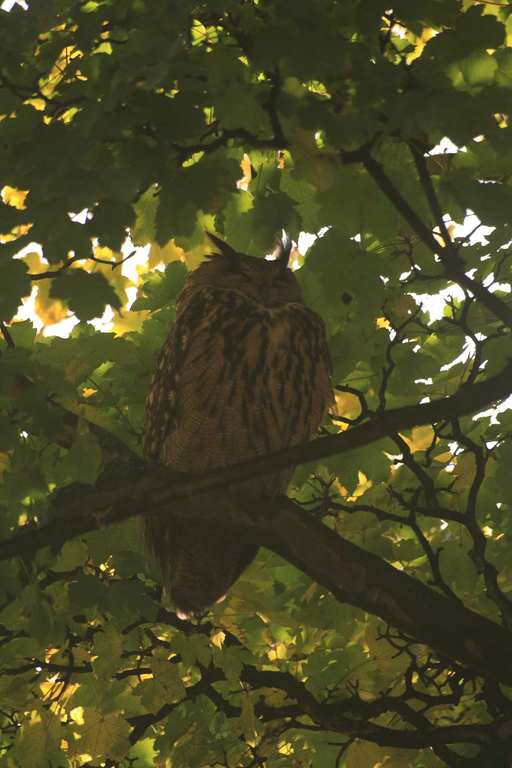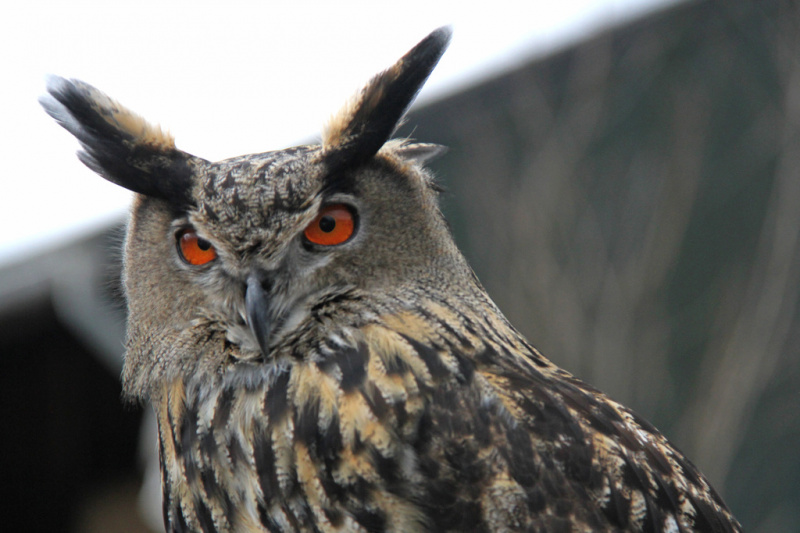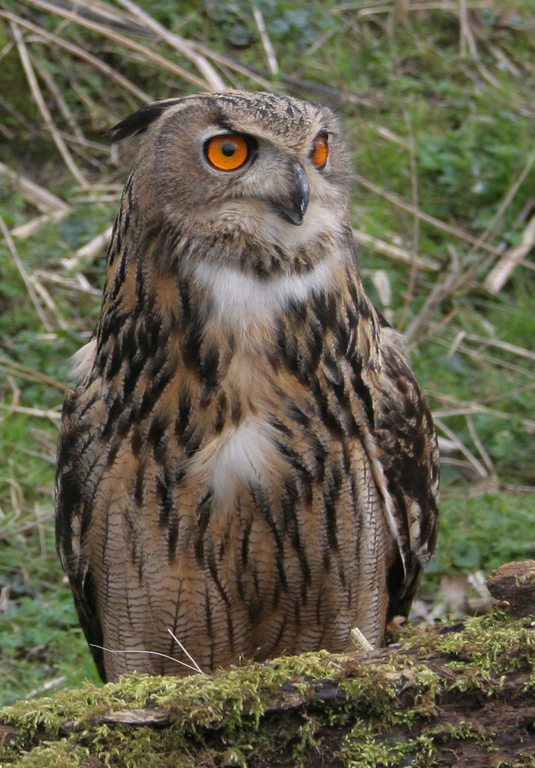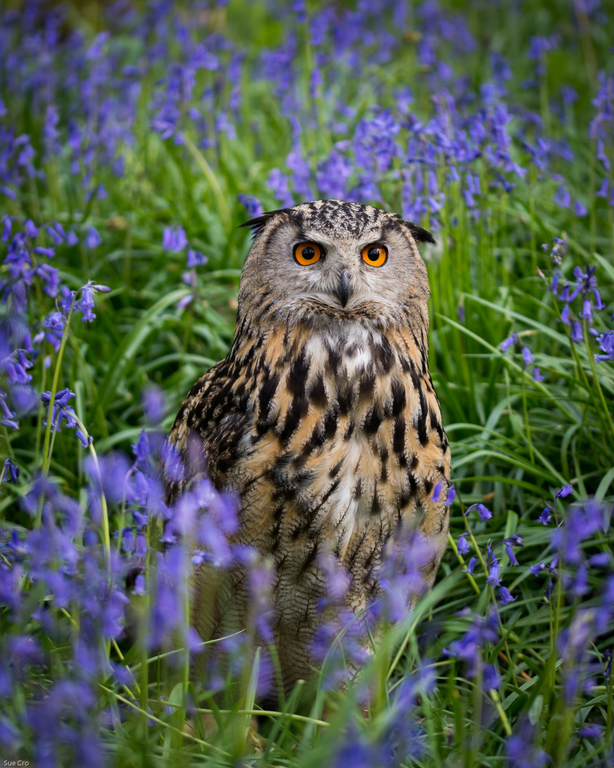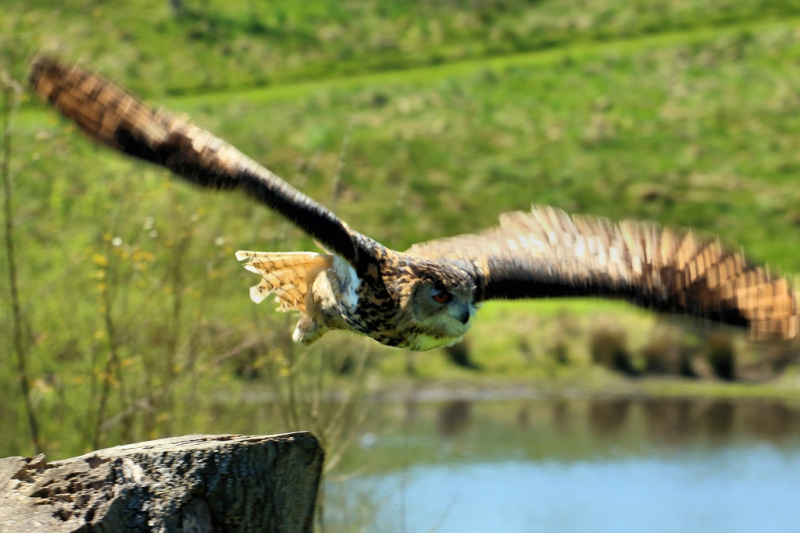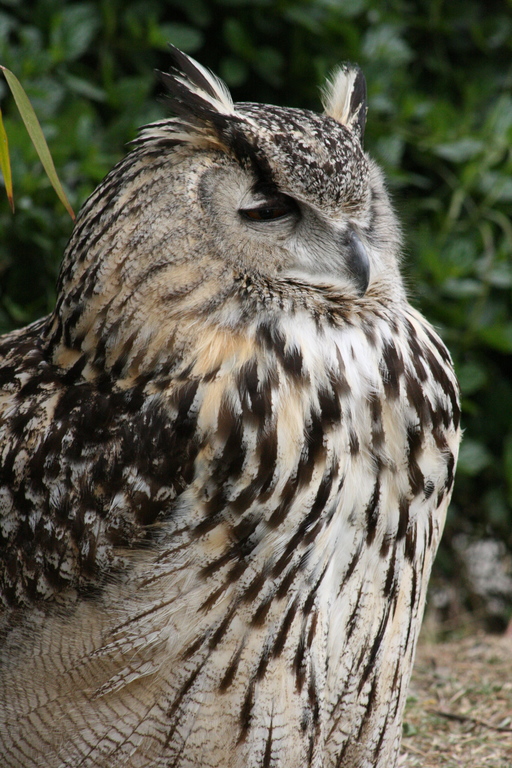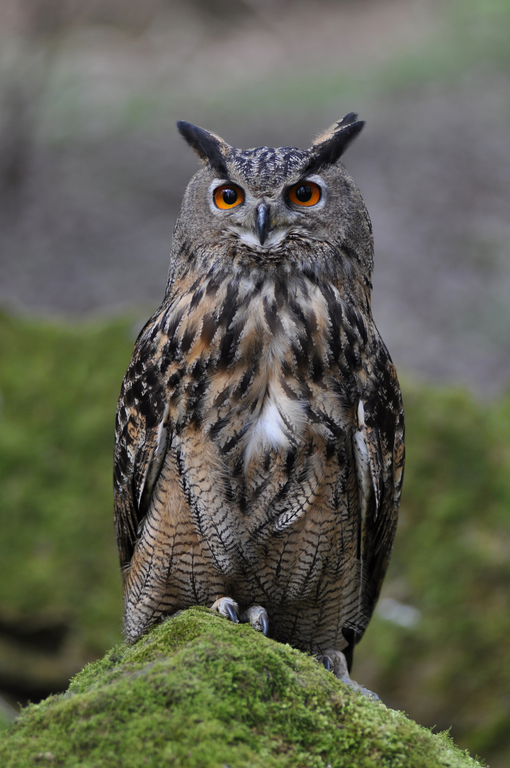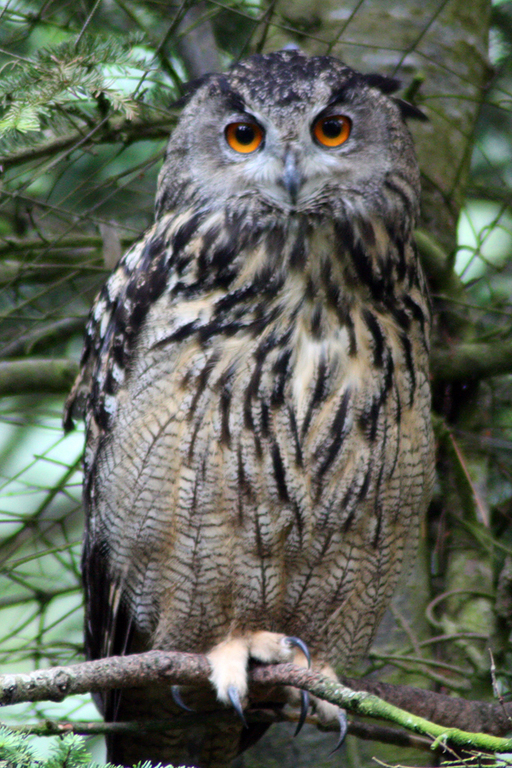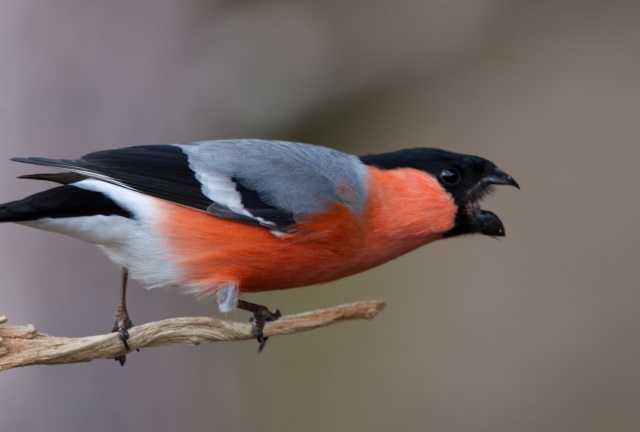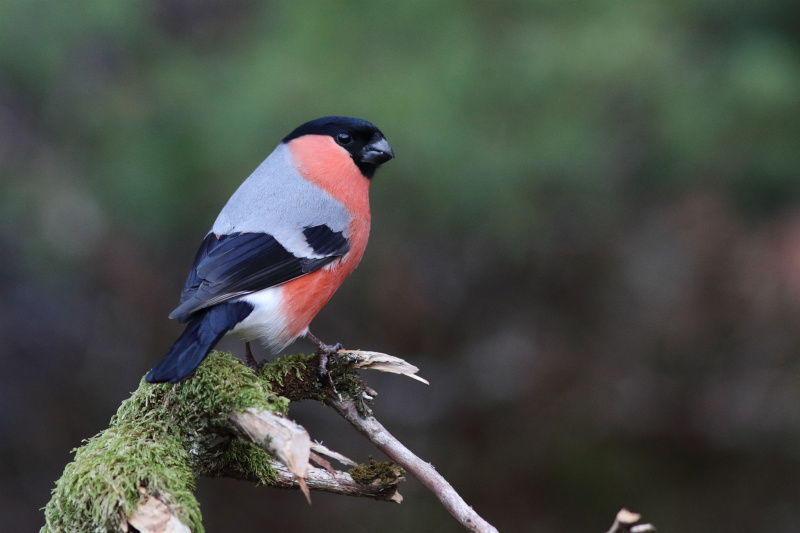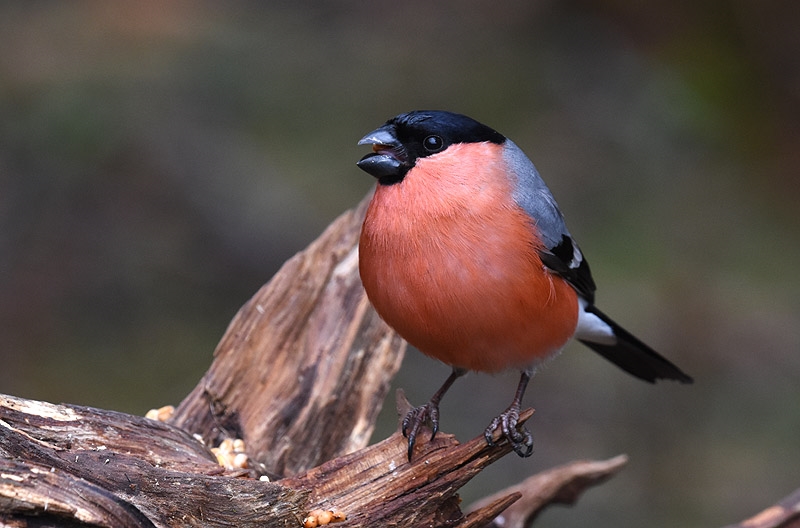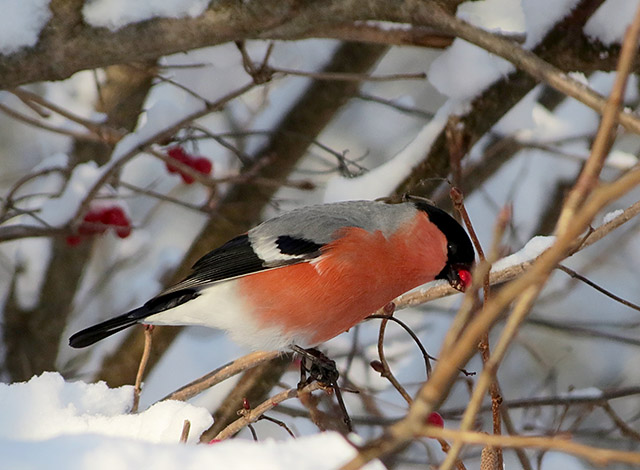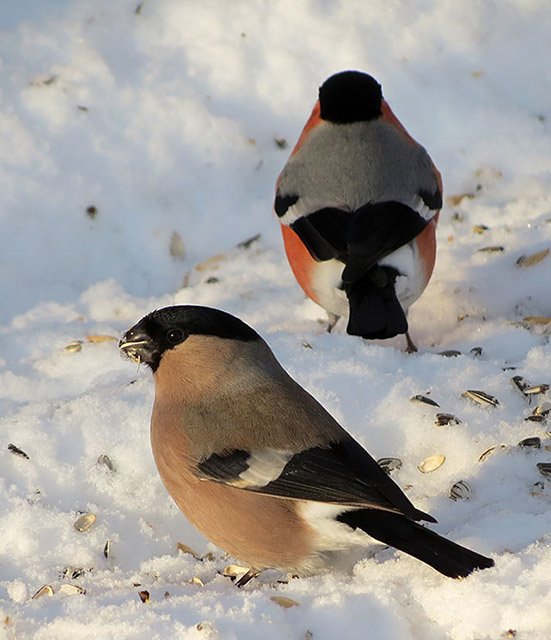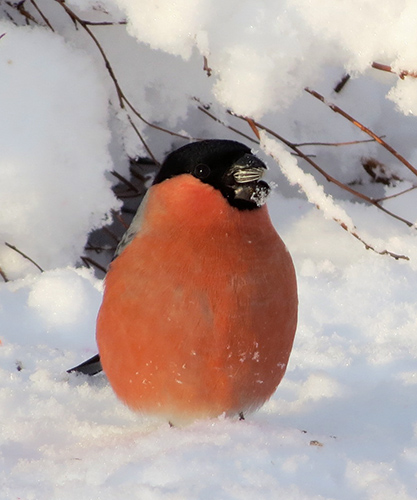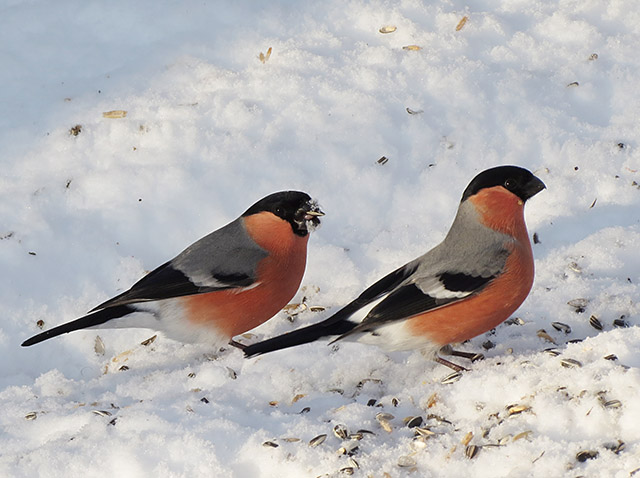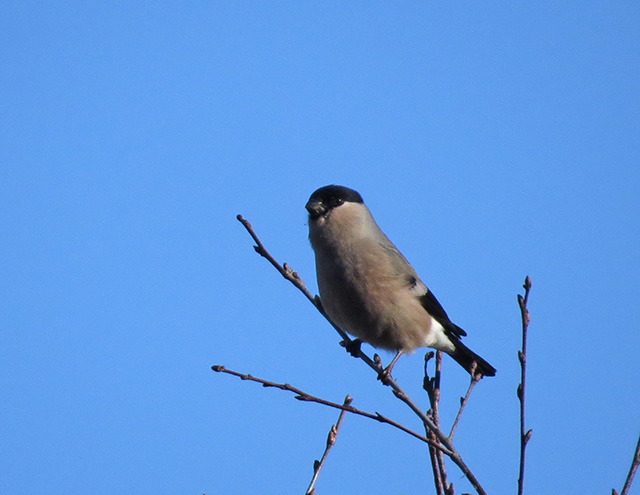Eagle Owl (Bubo bubo)
Bullfinch (Pyrrhula pyrrhula)
Very large brown owl. Usually identifiable by its size and brown tones alone. Long ear-tufts usually pointing to the sides (depending on mood). Face differs from Long-eared Owl in having rather dark and brownish facial disks, and much less prominent light eye-brows. Eyes orange. Lacks the pale base of primaries of Great Grey Owl. Flight powerful and more raptorlike than other owls, interspersed with long glides. Ear-tufts foldable, and less visible in flight.
Sound:Song a very deep "ooho". Continuous, but disyllabic. First syllable emphasized and second syllable rapidly falling in pitch. Quite similar to Long-eared Owl, but deeper and with more pronounced pitch change at end ("release"). Frequency of calls also diagnostic: Typically 8-10 seconds between each "ooho" (2-3 seconds in Long-eared Owl ). Audible at 1 - 4 km distance. Both sexes sing. Has a rich repertoire of contact/alarm calls like a hoarse, heron-like "kreaaak", and an excited, bubbling "hohohohoh".
Song:
Distribution:
Wikipedia: map (se also Xeno-canto below)
Ecology:Birdlife ecology
Links:
Observation.org Latest observations
Image search Flickr NB! May give other species
CCPinkish red (male) or greyish brown (female) underparts, and slate grey upperparts. Bill short and deep. Hood, tail, wings, bill and base of bill shiny black. Pure white rump and vent, together with white wing-bars prominent in flight. Wings and tail relatively long. Juveniles lacks black hood. Flight strongly undulated. Not so hurried as other finches when foraging.
Sound:Contact call a soft, full-bodied, descending, pure whistle; "peeuu". Song a quiet, modest mix of contact call and various chirping sounds, with peculiar harmonics.
Contact call, song:
Distribution:
Xeno-canto: map
Ecology:Birdlife ecology
Links:
Observation.org Latest observations
Image search Flickr NB! May give other species
CC
 English
English Albanian
Albanian
 Armenian
Armenian
 Bulgarian
Bulgarian
 Catalan
Catalan
 Croatian
Croatian
 Czech
Czech
 Danish
Danish
 Dutch
Dutch
 Finnish
Finnish
 French
French
 Georgian
Georgian
 German
German
 Greek
Greek
 Hungarian
Hungarian
 Italian
Italian
 Latvian
Latvian
 Lithuanian
Lithuanian
 Macedonian
Macedonian
 Norwegian
Norwegian
 Polish
Polish
 Portuguese
Portuguese
 Romanian
Romanian
 Russian
Russian
 Sami : Lule sami
Sami : Lule sami
 Sami : North sami
Sami : North sami
 Sami : South sami
Sami : South sami
 Scientific names
Scientific names
 Serbian
Serbian
 Spanish
Spanish
 Swedish
Swedish
 Ukrainian
Ukrainian


